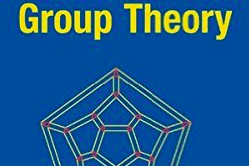Internet | Science & Technology for UPSC CSE PDF Download
Introduction
The Internet, a revolutionary system architecture, connects computer networks worldwide and enables communication and commerce. One pivotal organization in this ecosystem is the Internet Corporation for Assigned Names and Numbers (ICANN). Recently, ICANN transitioned to a "multi-stakeholder" model, granting it greater independence.
ICANN and Its Current Governance Structure
Establishment and Purpose
- ICANN, a non-profit entity founded in 1998, manages global domain names and IP addresses.
- The U.S. Commerce Department's National Telecommunications and Information Administration (NTIA) contracted ICANN's oversight, which expires on September 30.
Integration of IANA
- The Internet Assigned Names Authority (IANA), responsible for country codes, Internet numbers, and protocols, became part of ICANN, raising concerns about U.S. control.
Jurisdiction and Accountability
- ICANN's architecture presently makes it answerable solely to U.S. law and courts.
- Concerns arise over the potential for unilateral U.S. interference with ICANN's policy process and the Internet's root server.
Debate Surrounding ICANN's Governance
Controversial U.S. Practices
- Revelations, such as snooping on foreign leaders exposed by Wikileaks, have fueled skepticism.
- Allegations persist that ICANN, despite being a transnational body, operates under Department of Commerce supervision through its contract.
Broader Internet Governance Debate
- Broader discussions encompass cybersecurity, trade secrecy, freedom of expression, and national sovereignty.
Understanding Internet Governance
- The 2005 UN-sponsored World Summit on Information Society defined Internet Governance as the development and application of rules, norms, principles, and practices by governments, civil society, and businesses, each within their respective roles, to facilitate the evolution and use of the Internet.
Internet Governance Encompasses
- Technical Aspects
- This includes control over DNS servers and other infrastructure.
- Civil Aspects
- It involves issues like privacy and freedom of expression.
- Political Aspects
- Political considerations are vital, especially concerning the maintenance of national sovereignty.
- Security Aspects
- These include data security and cybersecurity measures.
 |
Download the notes
Internet
|
Download as PDF |
Challenges with ICANN's Current Role
- Transnational Nature
- ICANN is transnational but not truly global in its current form.
- Non-State Actor Dominance
- Non-state actors dominate ICANN, posing challenges for countries like China and Russia, which seek to maintain state control over the Internet.
- Centralized Control
- ICANN represents one of the few centralized points of control over the Internet.
- U.S. Oversight
- Oversight by the United States raises concerns about potential interference in global Internet governance.
Conclusion
ICANN's transition to a multi-stakeholder model represents a significant step toward greater independence. However, ongoing debates surrounding Internet governance highlight the need for a balance between global collaboration and national sovereignty in managing this invaluable resource.
|
114 videos|431 docs|209 tests
|
FAQs on Internet - Science & Technology for UPSC CSE
| 1. What is ICANN and what is its current governance structure? |  |
| 2. What is the debate surrounding ICANN's governance? |  |
| 3. What is internet governance and what does it encompass? |  |
| 4. What are the challenges with ICANN's current role? |  |
| 5. What is the conclusion regarding ICANN's current governance? |  |




















